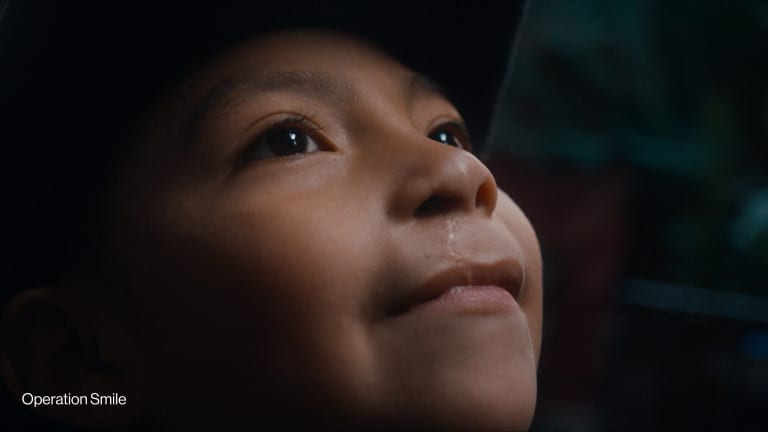
Over the past few years, the IBP Network, based at the World Health Organization, has explored storytelling as an approach to document and highlight effective and innovative interventions in family planning and other sexual and reproductive health, or FP/SRH, topics.
In 2021 and 2022, we published a series of implementation stories showcasing how local organizations used WHO guidelines on family planning and abortion care, as well as the high impact practices — a set of evidence-based family planning interventions — to improve health outcomes. This experience showed several benefits to storytelling, including opportunities to inform the evidence base, build capacity, and advocate for FP/SRH programs.
But storytelling does not come without its risks and hurdles. Below, we highlight common challenges to storytelling in FP/SRH and discuss how to turn them into advantages — creating stories that are authentic and impactful.
Local experience and voices must dictate the story
Highlighting health issues through people’s experiences means that we make choices about what story gets told and by whom. Africa No Filter’s Moky Makura and Conrad. N. Hilton Foundation’s Marshall Stowell highlight the importance of ethical storytelling and stress that NGOs and aid organizations should include more local context and voices, and provide opportunities for people to tell stories in their own words to ensure more inclusive communications.
Top-down approaches to storytelling, such as using information from governments or global agencies to form narratives, can provide valuable information. However, the IBP Network’s focus has been to put local people at the center of storytelling to reflect lived experiences from the field.
Local implementers sit on a wealth of knowledge about SRH issues they are dedicated to combating, including the social and cultural factors that can either complicate or support their efforts. It’s important for partners around the world to learn from these valuable lessons.
While local implementers may be experts on particular SRH issues and how they are best dealt with in their community, they may not have the time, resources, or skills in communications or monitoring and evaluation, to convey their knowledge and experiences in a systematic and effective way. The IBP Network provides practical support to local partners to synthesize and translate their knowledge, best practices, and outcomes into an impactful story.
During the crafting of the IBP implementation stories, local partners strengthened their skills in collecting qualitative and quantitative data; and in using data in an appropriate and meaningful way. The writing process itself was an exercise in capacity building and allowing the time required for people to “learn by doing” resulted in rich and authentic stories. Above all, this approach has allowed us to create a platform for stories that are not only about people on the ground but by people on the ground. We believe that this adds authenticity, credibility, and local buy-in.

Recognizing the cost of storytelling — financially and emotionally
Developing stories costs — not just in terms of time and physical resources, but also the emotional efforts that may be involved, such as reliving a painful memory, acknowledging what went wrong during program implementation, or taking the risk of raising topics that are sensitive to the local communities or donors.
Financially compensating for these costs, for example through a grant, is important — not only to put value on the effort it takes to develop a story, but also to enable investment in activities that strengthen the stories, for example through photography, community engagement, or promotional events.
Encouraging openness and authenticity while protecting integrity and safety
Encouraging people to share their experiences openly can provide important context and depth to understanding the need for and impact of SRH investments.
However, the sensitivity of SRH topics can make it difficult to collect real-life experiences and opinions from people on the ground. Not everyone is open to sharing information through formal interviews, and some stories may never be told if a person fears they will be written down. It is important to remember that there are different ways in which stories can be shared, for example through drama, visual arts, and video documentation.
Regardless of how information is gathered and shared, protecting people’s privacy, integrity, and safety is critical, especially when it comes to FP/SRH where there can be serious social or legal consequences for people if their stories are told inaccurately or are misunderstood. Working with local organizations, it is critical to stress the importance of seeking consent; anonymizing people when needed; and using quotes and images appropriately.
Acknowledging and addressing biases and taboos
There are times when stories that emerge from local NGOs, civil society organizations, and community members do not match preexisting conceptions or expectations. Narratives may expose aspects of social issues that people are not comfortable to hear or that clash with local norms or the expectations of global donors.
However, when probing for community experiences, one needs to be open to every input revealed. Real-life stories constitute great opportunities to understand and highlight important nuances of a health issue.
For example, in a story from Ecuador, the NGO Octaedro describes its efforts to prevent adolescent pregnancies. Octaedro learned that, for many young people in the country, early cohabitation and pregnancy are perceived as a way to gain a sense of control over their bodies and lives, in a context where physical violence, rape, and incest are prevalent and commonly accepted.
Understanding such underlying factors for SRH issues is key to finding solutions. Rather than shying away from the complexities of reality, we encourage SRH professionals to take full advantage of the potential of storytelling — and to use the process as an entry point to initiating well-needed conversations that would otherwise be difficult to raise.
Mindful investing in storytelling pays off
Since the IBP Network embarked on our first FP implementation stories in 2021, in collaboration with Knowledge SUCCESS, we have gone on to also develop the texts into webinars and a podcast.
Different formats that all contribute to a set of common convictions: Storytelling is a fun, creative, and relevant way to document evidence and advocate for what works in FP/SRH. It requires investments and careful considerations, but when done right, the storytelling process can be turned into unique opportunities. It allows us to become more mindful of how to engage in data collection and communications that are relevant, respectful, and inclusive. But also to challenge taboos and preconceptions, while creating a deeper understanding of issues so that we can reach groundbreaking solutions that transform lives.
Learn more about how the IBP Network works with storytelling in FP/SRH here.









